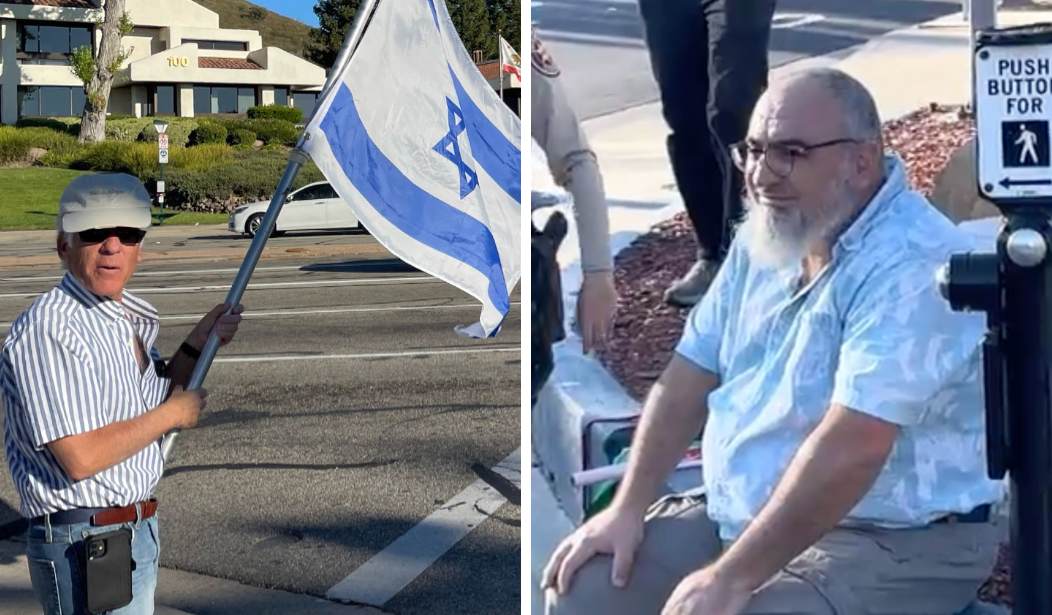Authorities in Ventura County, California have not ruled out adding a hate crime enhancement to criminal charges pending against Loay Alnaji, the Moorpark College professor charged with involuntary manslaughter and battery in the death of a Jewish man, Paul Kessler, District Attorney Erik Nasarenko said Friday morning. Alnaji was arrested early Thursday.
Nasarenko announced his office's charging decision Thursday evening.
Friday morning Nasarenko and Ventura County Sheriff Jim Fryhoff held a press conference, which revealed additional information. Nasarenko said that investigators from his office and the Ventura County Sheriff's Office have reviewed over 600 pieces of evidence and interviewed more than 60 witnesses in the nearly two weeks since Kessler was attacked. Nine search warrants have been approved by Ventura County Superior Court judges thus far in the investigation, but not all of them have been returned.
Regarding the charging decision, Nasarenko said:
We have charged the defendant, Loay Alnaji, with two felony counts, the first of which, involuntary manslaughter, a felony. The second count, battery causing serious bodily injury, also a felony. Accompanying each of these felony counts is a special allegation that in the commission of those crimes the Defendant personally inflicted great bodily injury upon Paul Kessler.
The significance of the special allegations is that they elevate these offenses to strikes under California's Three Strikes Law, which makes punishment prison-eligible.
Many have criticized officials for not bringing a murder charge or filing a hate crime enhancement against Alnaji. Regarding that, Nasarenko said:
Involuntary manslaughter is the killing of another without malice. To be sure, we received no evidence, no statements, no information whatsoever that the Defendant arrived at that intersection...with the intent to kill, harm, or injure anyone. But nevertheless...it is alleged that he committed involuntary manslaughter, specifically that he killed another with criminal negligence, specifically, reckless conduct that carried with it a high risk of death or great bodily injury, and that a reasonable person would have expected and appreciated this risk.
For the second charge, battery with serious bodily injury, Nasarenko says that's defined as the willful touching of another in a harmful or offensive way. That charge completely debunks the mainstream media narrative that Kessler just fell.
New information and both physical and forensic evidence that was developed allowed officials to go ahead and charge Alnaji, Nasarenko said:
Additional important pieces of information came forward, specifically, in filing these charges we relied upon new physical and forensic evidence as well as findings regarding the injuries to the left side of Paul Kessler's face. In addition, we were able to take video as well as digital footage, put it together, and establish a clear sequence of events leading up to the confrontation. These new pieces of evidence, as well as the technology that we utilized, has permitted our office to file charges.
Given the videos published at RedState both last week and Thursday, it's difficult to understand why a hate crime was not charged.
Nasarenko went to great lengths emphasizing that a hate crime hasn't been charged yet -- yet -- but that it hasn't been ruled out. He also outlined what officials are looking for in order to meet the elements of a hate crime charge.
We also did not file a hate crime at this time, although that investigation is ongoing. Simply put, looking at the statements as well as the words that accompanied the act, we cannot at this time meet the elements of a hate crime.
We're investigating whether or not the acts, the impact, the force, was accompanied by specific hate speech, specific statements or words that demonstrate an antipathy, a hatred towards a specific group. We don't have that at this point.
While it's frustrating to watch the seemingly slow pace of developments in this case, the scenario of a District Attorney and a Sheriff working together with their investigators to comprehensively review evidence and let their legal determinations be made as a result of that review is something that should be seen more often in our country. As Nasarenko said:
We were not pre-committed to any specific outcome, or even criminal culpability. Our charge and task as prosecutors is to follow the facts, follow the evidence, and adhere to the rule of law, doing so impartially, dispassionately, and soberly, and that is exactly what we have done, and that is how we have arrived at this point.
Some of the search warrants that were approved have not yet been fully executed, so we will likely see additional information when that occurs.

